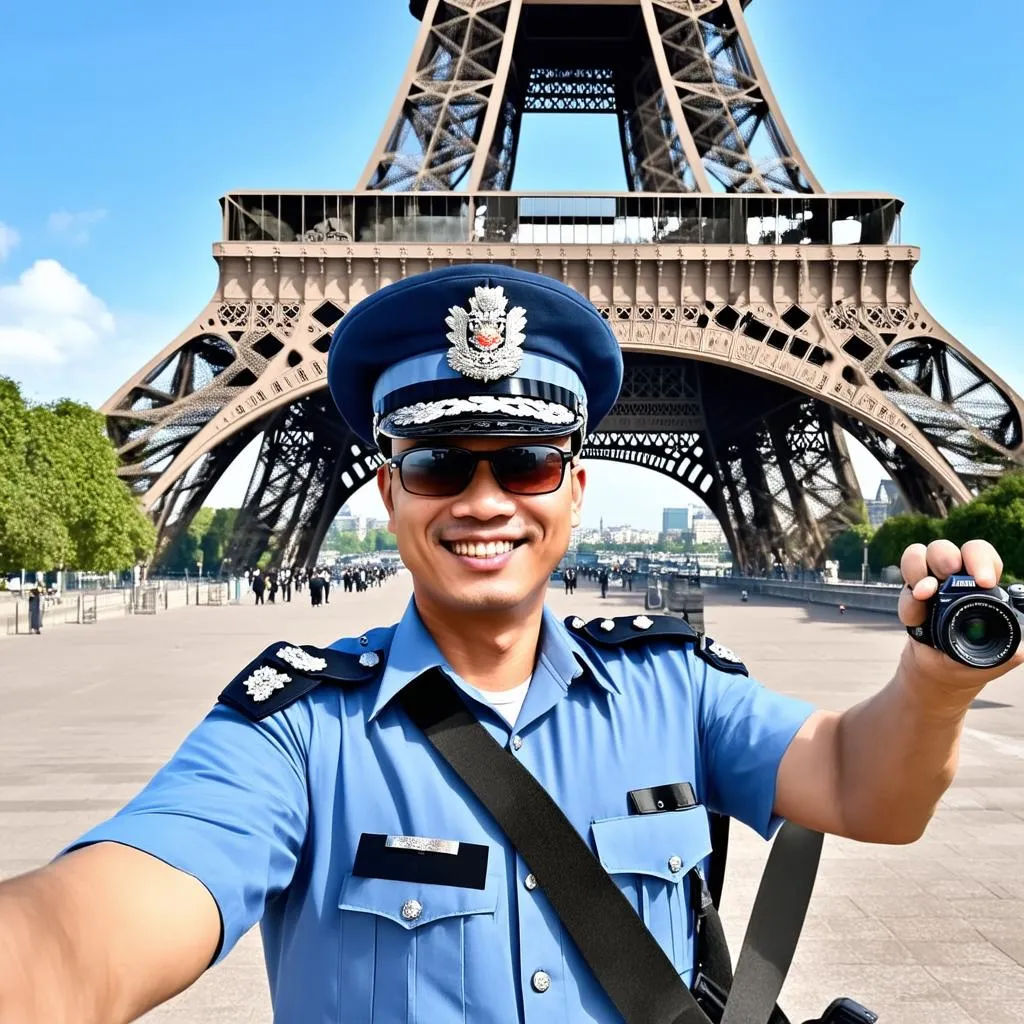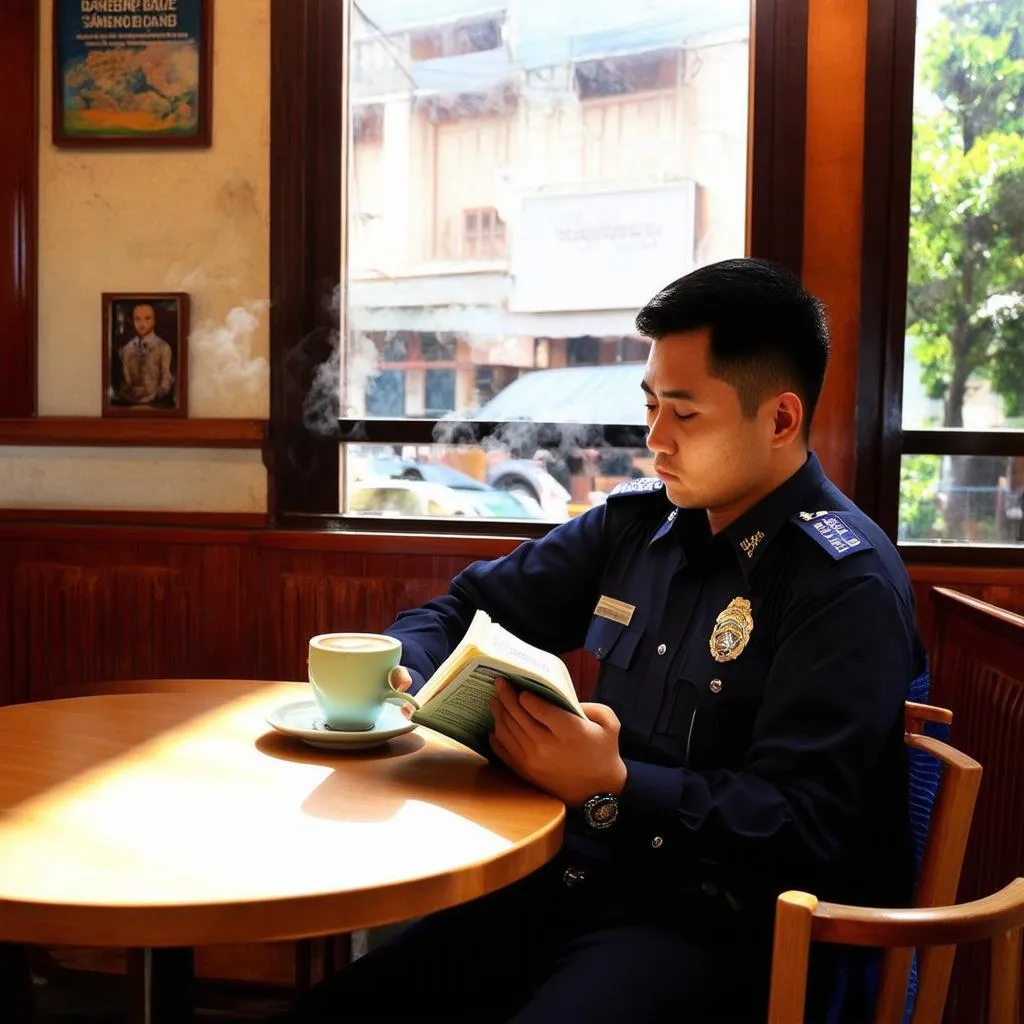Have you ever wondered if the police officers patrolling the bustling streets of Hanoi or directing traffic near Ho Chi Minh City’s iconic Ben Thanh Market get to enjoy international travel like the rest of us? It’s a question that piques curiosity, especially for those fascinated by the intersection of law enforcement and global exploration. Let’s dive into the regulations and realities surrounding Vietnamese police officers traveling abroad.
Navigating the Regulations
While the image of a Vietnamese police officer enjoying the Eiffel Tower or exploring Times Square might seem unusual, they, like any other citizen, have the right to apply for a passport and travel abroad. However, there are specific regulations and procedures they must adhere to due to the sensitive nature of their profession.
Obtaining Permission for International Travel
- Internal Clearance: A police officer needs to obtain permission from their respective department or unit head. This ensures their absence won’t compromise any ongoing investigations or operational needs.
- Ministry of Public Security Approval: After internal clearance, they must seek approval from the Ministry of Public Security. This higher level of scrutiny ensures the travel aligns with national security interests and doesn’t pose any risks.
- Standard Passport and Visa Procedures: Once both internal and Ministry approvals are granted, the officer follows the standard procedures for Vietnamese citizens applying for passports and visas, depending on their destination country.
Factors Influencing Approval
Several factors can influence whether a police officer’s request for international travel is granted, including:
- Purpose of Travel: Tourist visits are generally viewed more favorably than travel for potentially sensitive reasons.
- Destination Country: Travel to certain countries might be restricted due to diplomatic relations or safety concerns.
- Officer’s Rank and Record: Senior officers or those with impeccable service records might have an easier time obtaining permission.
Debunking Common Misconceptions
There are often misconceptions surrounding police officers and international travel. Let’s address a few:
Myth: Police officers can’t travel abroad.
- Reality: They can, subject to specific regulations and approvals.
Myth: Police officers on official duty abroad retain their authority.
- Reality: They have no jurisdiction outside Vietnam and must abide by the laws of the country they are visiting.
The Importance of Travel and Cultural Exchange
Just like anyone else, travel can provide invaluable experiences for police officers. Exposure to different cultures, perspectives, and law enforcement practices can broaden their horizons and enhance their understanding of a globalized world.
 Vietnamese police officer in front of the Eiffel Tower
Vietnamese police officer in front of the Eiffel Tower
Tips for Vietnamese Police Officers Planning a Trip Abroad
If you’re a police officer in Vietnam dreaming of exploring the world, here are a few tips:
- Plan Well in Advance: The approval process can take time, so start early.
- Be Transparent: Clearly state the purpose and itinerary of your trip.
- Maintain a Low Profile: While traveling, remember to be respectful and avoid drawing unnecessary attention to your profession.
 Vietnamese police officer reading a travel guide at a cafe
Vietnamese police officer reading a travel guide at a cafe
Conclusion
While regulations exist, Vietnamese police officers can and do travel abroad. By understanding the procedures and planning accordingly, they can experience the enriching benefits of international travel. For more information and resources on travel regulations and destinations, visit TRAVELCAR.edu.vn. We’d love to hear about your travel aspirations, share your thoughts in the comments below!

